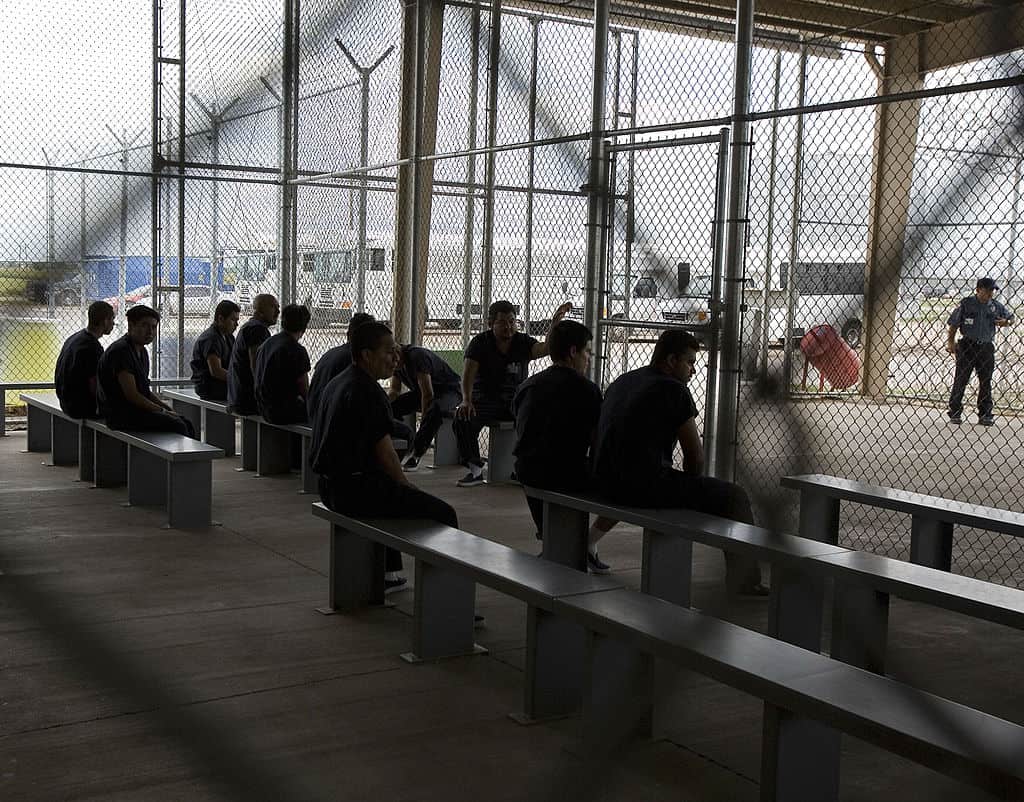The first Texas prisoner tested positive for Covid-19 on Tuesday, according to the Texas Tribune.
The 37-year-old Galveston man is the second person in the Texas prison system to test positive for the new coronavirus. Over the weekend, a counselor working at a prison outside of Houston also tested positive.
It’s a sobering reminder that the pandemic poses a major public health risk to the more than 200,000 estimated Texans in prisons or local jails — as well as those who frequently visit or work within them.
Already, many states and counties across the U.S. are starting to release inmates convicted of low-level crimes in order to curb the threat of coronavirus. In New Jersey, 1,000 inmates are set to be released; In Los Angeles County, 600 inmates have been released so far and police are citing and releasing people whenever possible; In California’s Bay Area, the Alameda County Sheriff’s Office has released more than 300 people — either inmates medically at-risk or those nearing the end of their sentence.
In Texas, some are pushing for similar changes as well, like Harris County Sheriff Ed Gonzales who is reportedly working with judges to try and release nonviolent offenders.
Some measures to dampen the pandemic in the prison system have already been taken by the state. Last week, the Texas Department of Criminal Justice announced it would take the temperature of correction officers and newly arrived offenders. Earlier this month, Gov. Greg Abbott suspended visitations to prisons.
Several civil right groups in the state, including ACLU of Texas, Texas Civil Rights Project, and Texas Criminal Justice Coalition have penned letters pressuring state leaders or criminal justice officials to do more, such as reducing prison populations by releasing certain inmates, ending arrests for non-violent offenses, and avoiding cash bail.
“More than 60,000 people will sleep in jail cells in Texas tonight. Many of them have not been found guilty and are only there because they can’t pay cash bail,” said Sarah Labowitz, policy director for the ACLU of Texas, in a recent statement. “Health experts agree that reducing incarcerated populations and protecting vulnerable groups is part of a smart response to the COVID-19 pandemic.”
The same concerns are being extended to immigrants and refugees facing similar conditions at crowded federal detention facilities.
Many immigration advocates groups, like RAICES, are calling for the release of detained immigrants and a stop to immigration enforcement. The Texas-based defense and activist nonprofit recently warned that many of their clients at the Karnes and Pearsall Detention Centers are medically vulnerable.
“At Karnes, there are families with children, and those at Pearsall are trans women with HIV. We are working with at least six children with symptoms of cold, cough and flu with several families complaining of inadequate testing and/or treatment,” Erika Andiola, Chief Advocacy Officer at RAICES said last week. “We are currently aware of 4 pregnant women and 14 babies under two years old detained there.”
Photo: PAUL J. RICHARDS/AFP via Getty Images
Fernando covers Texas politics and government at the Texas Signal. Before joining the Signal, Fernando spent two years at the Houston Chronicle and previously interned at Houston’s NPR station News 88.7. He is a graduate of the University of Houston, Jack J. Valenti School of Communication, and enjoys reading, highlighting things, and arguing on social media. You can follow him on Twitter at @fernramirez93 or email at fernando@texassignalarchive.com





